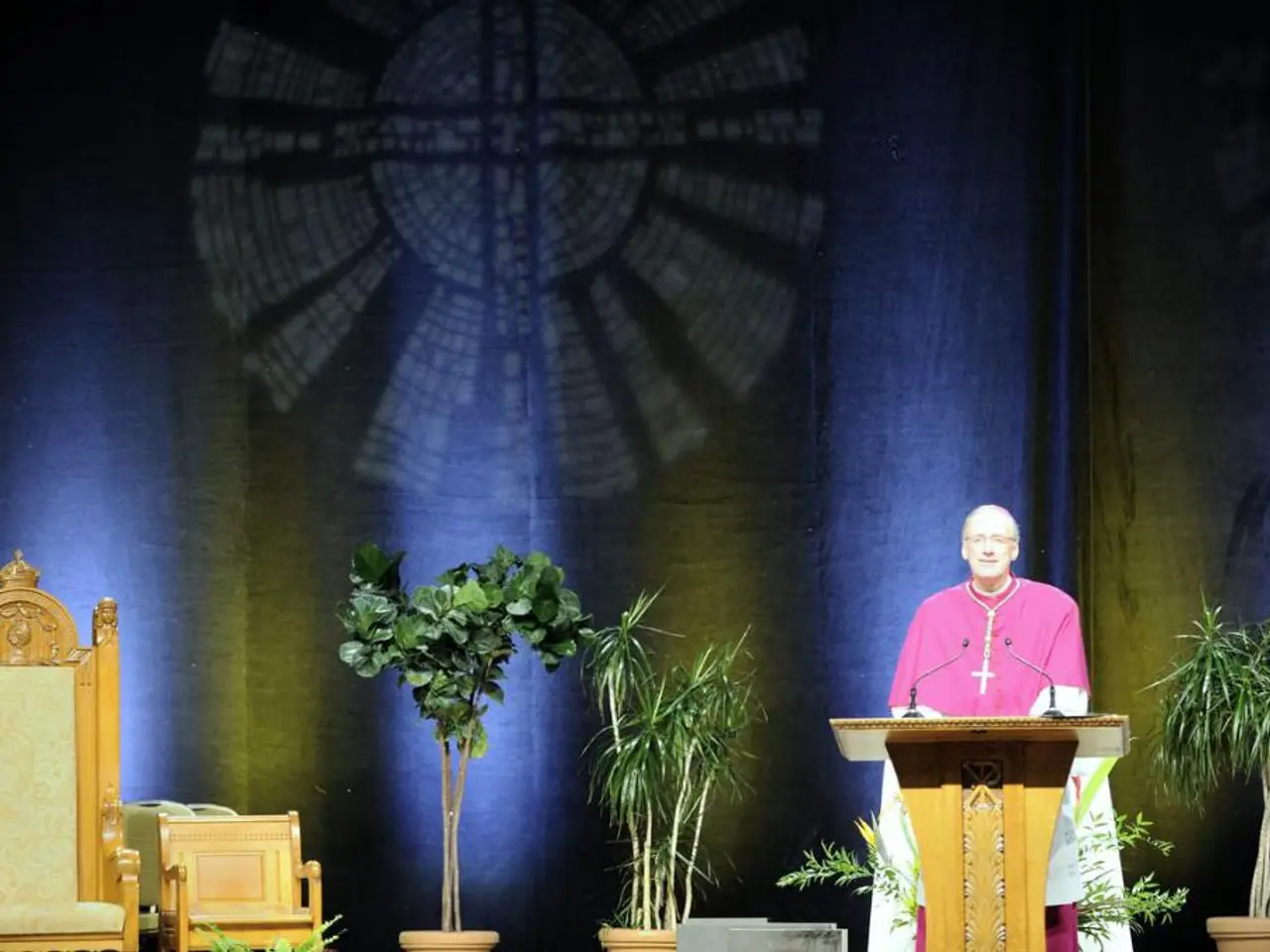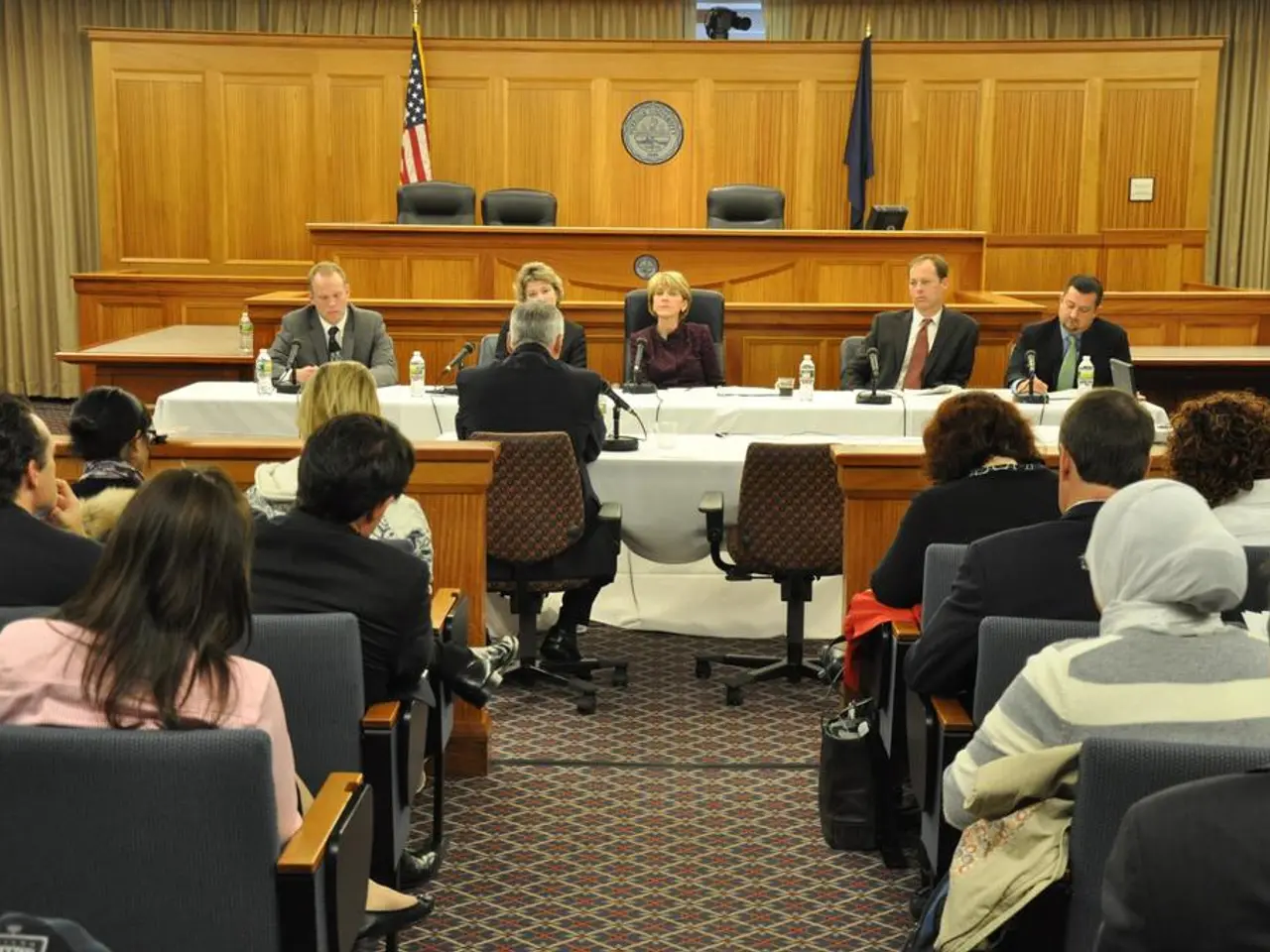Nationwide Islamic Religious Education Union's Study Report
AfD Opposes Comprehensive Islam Instruction in German Schools
The Alternative for Germany (AfD) has expressed opposition to comprehensive Islam instruction in German schools, citing concerns about the influence of Islam in Germany. This stance aligns with the party's broader ideology, which has been classified as extremist by the German domestic intelligence agency (BfV) for promoting an ethnically defined concept of the people and stirring hostility towards Muslims and migrants [1][2].
Dr. Rainer Balzer, education spokesman for the AfD fraction in the Baden-Württermann State Parliament, is a key figure in this debate. He criticized the proposal by VBE chairman Gerhard Brand for comprehensive Islam instruction, stating that integration becomes cultural self-abandonment, and our schools become testing grounds for multi-religious parallel worlds [3].
Balzer believes that the idea of curbing Islamic radicalization through state-supervised religious instruction is naive. Instead, he argues that such instruction would permanently anchor Islam in the education system, along with its ideological and legal problems [4]. He asserts that by opening schools to an ideological and, in parts, backward-looking worldview, we are leaving behind the European Enlightenment and its progress.
The AfD fraction in the Baden-Württermann State Parliament has provided contact information for the press office and public relations. The visiting address is House of Parliament: U32/305, Urbanstraße 32, 70182 Stuttgart, and the telephone number is +49 711 2063-5042. The contact email is [email protected] [5]. The press release about Balzer's criticism was issued by Josef Walter, press spokesman and head of the press office of the AfD fraction in the Baden-Württermann State Parliament [6].
Balzer's concerns about Islam's influence in Germany are shared by a majority of AfD supporters, who view Islamic influence as too strong and justify demonstrations against it [7]. The AfD's religious discourse largely emphasizes Christianity in opposition to Islam, signaling a cultural and religious boundary they seek to maintain politically [8].
In summary, the AfD opposes comprehensive Islam instruction in German schools as part of its wider anti-Muslim, anti-Islam platform, driven by fears of cultural and religious influence that they believe threatens German identity and societal cohesion [1][3].
[1] https://www.spiegel.de/politik/deutschland/afd-und-islam-die-debatte-um-islamunterricht-in-deutschen-schulen-a-1164435.html [2] https://www.tagesschau.de/inland/afd-extremismus-101.html [3] https://www.welt.de/politik/deutschland/article185961558/AfD-fuehrt-Kampagne-gegen-Islamunterricht.html [4] https://www.n-tv.de/politik/AfD-kritisiert-Islamunterricht-in-Schulen-article20907763.html [5] Contact information for the AfD fraction in the Baden-Württermann State Parliament. [6] The press release was issued by Josef Walter, press spokesman and head of the press office of the AfD fraction in the Baden-Württermann State Parliament. [7] https://www.tagesschau.de/inland/afd-umfrage-101.html [8] https://www.dw.com/en/germany-afd-the-party-that-loves-to-hate/a-42958233
The AfD'spolicy-and-legislation, particularly in the realm of education, is characterized by their opposition to comprehensive Islam instruction in German schools, a stance that stems from their broader politics in policy-and-legislation and general-news. This controversial stance, rooted in fears of Islamic influence, has been noted to threaten societal cohesion and challenge German identity, as highlighted in general-news reports [1][2].
Furthermore, the AfD's religious discourse heavily emphasizes Christianity in opposition to Islam, signaling a significant political boundary they seek to maintain, as observed in politics and general-news [8]. This opposition to Islam and Islamic influence within the party is shared by a majority of AfD supporters [7].








